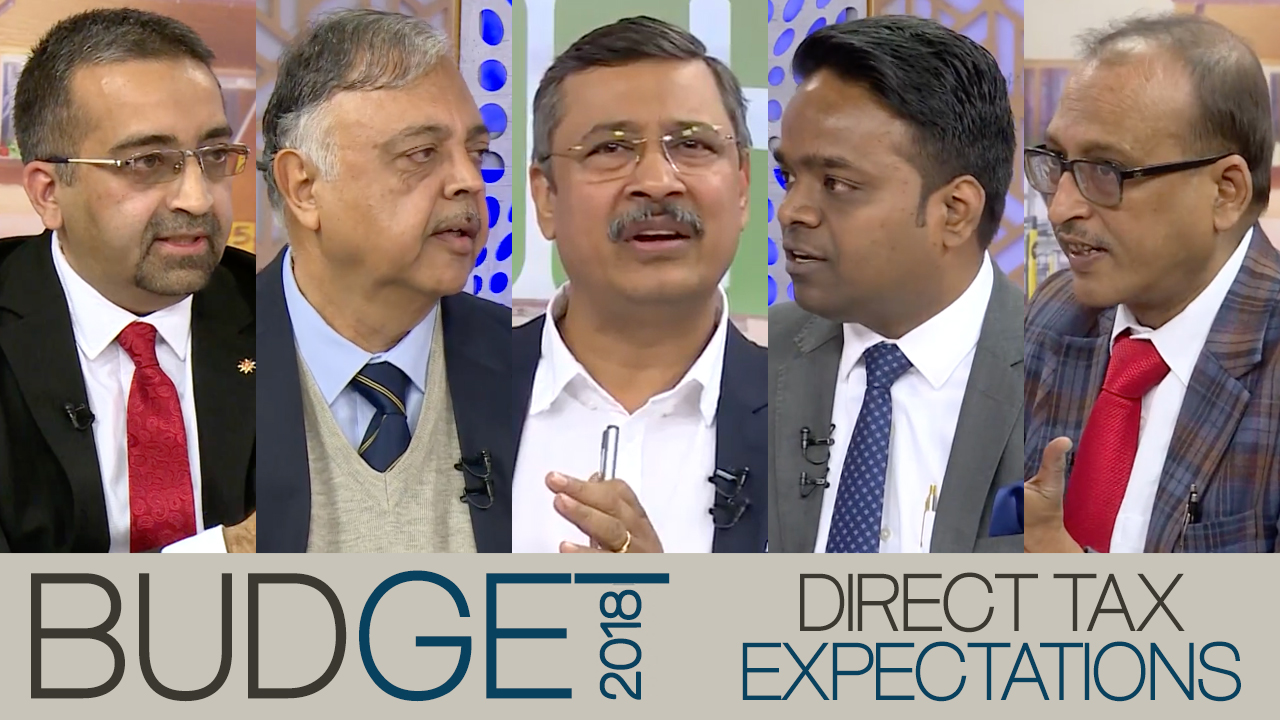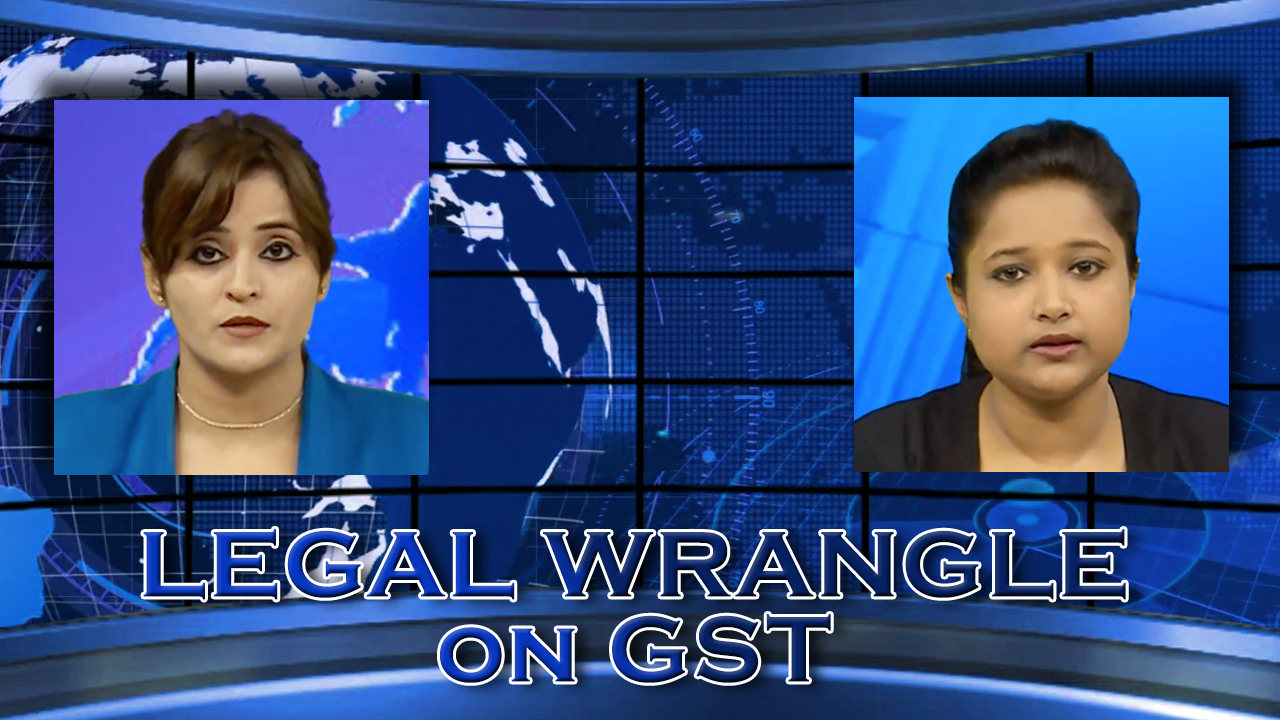|
SERVICE TAX SECTION
2018-TIOL-92-CESTAT-MUM + Story
CC & CE Vs Swapnil Asnodkar
ST - Brand promotion fee was not taxable prior to 01.07.2010, hence there cannot be any tax liability on the respondent - moreover, after 01.07.2010, in the subsequent years, the fee towards brand promotion which falls under Business Auxiliary Service remained below the exemption limit of Rs.10 lakhs, hence there cannot be any liability upon respondent to pay service tax - Revenue appeal dismissed: CESTAT [para 4, 5]
ST - BAS - Match fees - No specific clause of Section 65 (19) defining Business Auxiliary service has been shown to be applicable to levy service tax - demand being vague is not enforceable against the Respondent -Match fees received by respondent is not taxable under BAS: CESTAT [para 4] - Appeal dismissed : MUMBAI CESTAT
2018-TIOL-91-CESTAT-ALL
Pranay Towers Vs CCE
ST - the assessee was registered for providing 'Renting of Immovable Property' service - The assessee paid service tax on such service till March 2009 - Subsequently, the scope of Section 65(105)(zzzz) was expanded to include even the renting of immovable property as service taxable under this entry, with retrospective effect - Thereafter, duty demand was raised for period between April 2009 to March 2010 -
Held - Considered findings of the Tribunal in M/s Jindal Vegetable Products Ltd. Vs CCE - Such ruling squarely applicable to the present facts - Following the same, duty demand set aside: CESTAT (Para 2,5) - Appeal Allowed :
ALLAHABAD
CESTAT
2018-TIOL-90-CESTAT-DEL
Ruchi Infrastructure Ltd Vs CCE
ST - Assessee owned various premises which can be used for warehousing facility - M/s. MPWLC entered into an agreement with assessee - In essence the agreement is called Joint Venture agreement in partnership between the MPWLC and the assessee for certain intended purposes - Assessee provided their premises for storing the goods brought by depositors, which is warehoused and maintained by warehousing corporation - Revenue entertained a view that the amount of consideration received by assessee from warehousing corporation is liable to be taxed as premises of assessee were rented out to warehousing corporation to be used for business or commerce - Admittedly, the agreement itself states the intend of Joint Venture agreement of partnership between assessee and the State Warehousing Corporation - Further, there were identified responsibility for each parties - This is not the case about the handing over of property and receipt of consideration of such property - They continued to share the responsibilities in terms of agreement - It is not the rent agreement - Both parties intended to be joint partnership agreement though certain clauses mentioned therein are clearly in contradiction - However, consideration to be accrued to both the parties specifically to be identified out of common total income, Warehousing Corporation undertakes certain activities over and above the storage fee - Considering the overall scope of the terms of agreement, same is more in the nature of Joint Venture Agreement than a simple rent agreement for usage of immovable property - In this connection, Tribunal refers to the decision of Supreme Court in case of Gujarat State Fertilizers and Chemicals Ltd. & Anr. 2016 -TIOL-198-SC-ST and the decision of Tribunal in Mormugao Port Trust 2016-TIOL-2843-CESTAT-MUM - Issues dealt with in this case are also with reference to Joint Venture arrangement claimed by assessee - Impugned orders are not sustainable and accordingly are set aside: CESTAT - Appeals allowed : DELHI CESTAT
2018-TIOL-89-CESTAT-DEL
CST Vs Kanwarji Construction Company
ST - Respondent is engaged in construction activities – revenue is aggrieved by the impugned order on two issues : (a) non-confirmation of ST liability of Rs.30.50 lakhs as the construction of school building is not excluded from tax liability (b) non-impostion of penalties under section 76 and 78 of the Finance Act.
HELD: The nature and use of building being for school education managed by school recognized by the Government, the building is excluded from the tax liability under commercial or industrial construction service - the building is primarily used for education and not for commerce or industry -accordingly, the Bench is in agreement with the original authority regarding non-tax liability of the said building -the facts of the case as summarized in the impugned order clearly revealed that it is not a fit case for imposition of penalty under section 76 & 78 -though, invocation of section 73 (3) in the impugned order may not be relevant, it would have been proper if the adjudicating authority invoked section 80 to arrive at the same conclusion - the same cannot be the basis to reverse the said finding of the original authority - no merit found in the appeal by the revenue for imposition of penalty under section 76 and 78 – appeal dismissed : CESTAT [para 8, 10, 11] - Revenue's appeal dismissed : DELHI CESTAT
CENTRAL EXCISE SECTION
2018-TIOL-88-CESTAT-DEL
Mi Telecom Solutions Pvt Ltd Vs CCE
CX - Appellant is carrying-out job work for M/s.Acme Tele Power (P) Ltd. [M/s.Acme] who are availing area based exemption and are manufacturers of Telecom Green Shelter Systems -since they enjoyed the benefits of area based exemption under notification no.50/2003, revenue was of the view that the goods manufactured on job work by the appellant for M/s.Acme will not be eligible for the benefit of job work notification no.214/1986-CE - demand of Rs.2.48 crore confirmed - in the earlier round of litigation, the Tribunal remanded the matter to the adjudicating authority for de-novo adjudication and to give specific findingafter considering the appellant's plea that the goods which were being cleared by the appellant to M/s.Acme are incomplete battery management systems, incomplete electrical panel, incomplete air-cooling systems and incomplete line regulators and as such are not marketable and, therefore, are not excisable - vide impugned order, the adjudicating authority reiterated his earlier order, hence appeal before CESTAT.
HELD: Perusal of the photographs of the goods being cleared by the appellant indicate that the appellant has only populated some of the components in the enclosures supplied by the principal manufacturer - these are undoubtedly in the form of incomplete systems of various equipments and definitely cannot be marketed, as such, in the light of the test laid-down by the Apex Court in the case of Bata India Ltd. - 2010-TIOL-28-SC-CX - there is nothing on record produced by revenue that the incomplete goods are capable of being marketed without further processing - consequently, the goods failed the test of marketability - since marketability is a very important aspect of manufacture, the goods cannot be considered as manufactured in the form in which they are cleared from the appellant's factory - in view of the above, there is no justification for the demand of duty on the goods cleared by the appellant to the principal manufacturer - accordingly, the impugned order is set aside and appeals are allowed : CESTAT [para 10, 11] - Appeals allowed : DELHI CESTAT
2018-TIOL-42-HC-MUM-CX
CCE Vs Rafique Malik
CX - Manufacture - The challenge in this appeal by revenue is to the judgment in 2005-TIOL-1594-CESTAT-MUM passed by Tribunal - The contention of assessee is that the activity of taking out footwear in finished form from boxes bearing M.R.P. and labelling the same with their brand names "Metro" and "Mochi" and of putting them into the same boxes is not "manufacture" as defined under clause (f) of Section 2 of CEA, 1944 - As admittedly, the footwear in finished form was received by assessee, it is impossible to say that in the form in which the footwear was received, it could not be marketed or sold in open market by assessee - Even without carrying out the activity of putting its brand name, the final product namely the footwear could have been marketed and sold to the consumers - Even assuming that one or two brand names affixed by assessee are very popular, by affixing the brand name, at highest the value of the footwear will increase - However, it is impossible to accept that by giving a treatment to the footwear which is in finished form by affixing brand names renders the product marketable to the consumer - Therefore, on plain reading of sub-clause( iii) of clause (f) of Section 2, the activity does not amount to manufacture - In case of Carona Sahu Co. Ltd., Single Judge of this Court observed that it is settled law that the mere affixation of the brand or trade name on footwear purchased by assessee is not sufficient to treat it as being manufactured by assessee - Even by giving liberal meaning sub-clause (iii) of Section 2(f), the case of revenue cannot be accepted for the simple reason that the activity admittedly carried out by assessee by itself did not render the goods marketable to the consumers inasmuch as the same were already marketable as the goods in question were footwear in finished form manufactured by artisans - Hence, there is no scope to find any fault with the finding recorded by the Appellate Tribunal: HC - Appeal dismissed : BOMBAY HIGH COURT
CUSTOMS SECTION
NOTIFICATION
ctariff18_001
Petroleum Coke excluded from the purview of concessional rate of 5% BCD
ctariff18_002
Effective rate of customs duty on Textile products falling under TI 6001 9200 changed from 20% to 20% or Rs.100 per kg, whichever is higher
CASE LAWS
2018-TIOL-43-HC-KOL-CUS
Aman Exports Vs CC
Cus - Goods are imported consignments lying in containers at the Port - The authorities are obstructing de-stuffing of containers and as such, huge demurrage charges are being incurred. - application was made on behalf of the owner for provisional release of the goods - There cannot be any dispute regarding ownership since the bills of lading are in name of assessee, a partnership firm which is the owner of imported consignments - Assessee refers to section 49 of Customs Act, 1962, which provides for storage of imported goods in warehouse pending clearance - Assessee hands up copy of letter dated 4th December, 2017 addressed to his clients by which respondent no.1 rejected the previous application for provisional release of goods on the ground that the importer firm was a "shell company" - He also refers to CBEC Circular 35/2017-Customs to submit that authorities have not disclosed any reason contemplated therein to obstruct provisional release of the goods - Now that representation has been made by a partner of the firm who had imported the goods, respondent no.1 is to consider and dispose of the same within ten days - For the purpose of dealing with representation, the said respondent will call for hearing of person making the representation as well as DRI - In dealing with representation, said respondent, if is to exercise discretion to deny provisional release of goods, must take care to give reasons within the scope of observations of Madras High Court as mentioned in said circular - Assessee will be at liberty, in that event, to urge for warehousing of goods under section 49(a): HC - Appeal disposed of : CALCUTTA HIGH COURT
|
|








